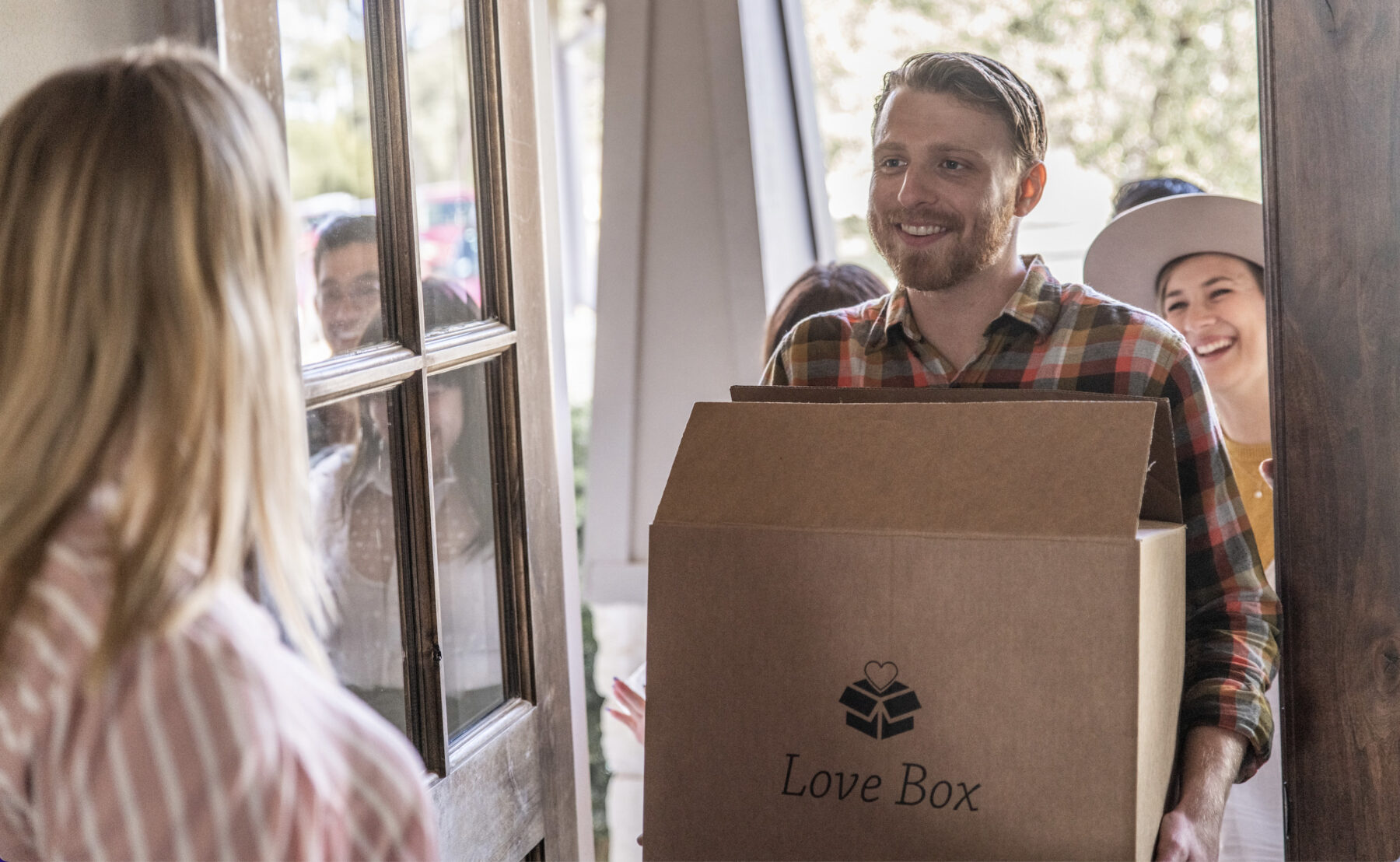“Community changes everything:”
How National Angels is empowering youth and families experiencing foster care

By the time he was 14, Damien had spent 11 years in foster care, shifting between 17 different homes. That meant changing schools, making friends, and getting adjusted to an entirely new family, 17 times over.
Because of the turmoil, Damien had a hard time succeeding in school, establishing relationships with friends and foster families, and building self-esteem. His dream was to join the school football team — but he didn’t have the grades to make the team, or the support system to get to try outs.
Then, he was matched with National Angels.
A group of volunteers from the foster care nonprofit organization built a trusting relationship with Damien, spending time with him to listen to challenges he was having, providing advice when needed on how to solve them. They wrote him a note of encouragement to read daily, reminding him that they believed in him.
National Angels supports both youth and families involved in foster care, through the strength of community. Their approach builds long-lasting relationships between youth, families, and volunteers, in an area where stability can be rare. Doing so provides a foundation for youth to pursue the best version of themselves.

Foster care in the U.S. often leaves youth unsupported long-term
Currently, there are more than 400,000 children in foster care in the U.S. Fifty percent of foster homes close within their first year, and one-third of youth have been in at least three different placements.
As a result of this instability, children like Damien often disproportionately experience negative effects in many aspects of their lives, including increased arrests, mental health issues, homelessness, and other challenges. Youth who age out of the system “have less financial, emotional, and social support than their peers, yet they are often expected to be as self-sufficient as those who have familiar support and guidance,” according to National Angels.
“We know that the majority of the prison, human trafficked victims and our homeless population spent time in foster care,” says Susan Ramirez, CEO of National Angels. “We ensure every child is empowered to reach their fullest potential, feels seen, loved and has relational permanence that outlives the program.”
National Angels is powered by community
Providing a community is the first step to enacting the bottom-up empowerment of children in foster care: having supportive and stable relationships helps youth to realize their worth and reach for the future they want for themselves.
Headquartered in Austin, Texas, National Angels operates in 21 cities across the country. The program works through three pillars: intentional giving, relationship building, and mentorship.
Through intentional giving, volunteers can provide a customized “Love Box” containing items the family needs or wants. This can include household supplies, school supplies, clothing and shoes, seasonal items, and notes of support. Through relationship building, a volunteer is matched up as an advocate for a foster child, including attending their sports games, joining them for game nights, sharing meals together, and being someone to chat with. Through mentorship, volunteers act as role models, working with youth to visualize and prepare for their futures. This can include helping them get drivers’ licenses, tutoring, and writing resumes.

Crucially, none of these initiatives are one-time only. For all three, volunteers are matched with a family and youth and interact with them on a monthly or weekly basis. The program requires a one year commitment, but many volunteers stay in the program more than three years on average, often providing support up through high school graduation and beyond.
Being surrounded by a community who cares for them and encourages them provides youth the confidence to realize and utilize their unique skills and passions. Whether it is getting a high school diploma, learning a new trade, or whatever else they want for themselves, National Angels volunteers are there to guide them.
National Angels takes family support to the next level
What sets National Angels apart is this: It isn’t just there to support youth experiencing foster care. Families themselves also often struggle too, lacking resources, guidance, and support to allow them to take in and raise a child.
Through intentional giving and relationship building, volunteers are there to help families help the children they love and care for, whether it’s helping out with groceries and clothing or writing notes of encouragement.
“Not everyone is called to foster or adopt, but everyone can make a difference in a child’s life,” says Ramirez. “There is so much hope and beauty in foster care and every statistic that surrounds foster care can be changed.”
More than ever, foster children can envision a future for themselves
Within just six months of being matched with his Love Box volunteers, Damien achieved straight A’s in every single one of his courses. His relationships with his friends, foster family, and mentors have all strengthened significantly.
And his National Angels supporters cheer him on enthusiastically from the sidelines, where he has become an all-star player on the school football team. Having achieved his dream, he has now set his sights on going pro in the NFL.
“(National Angels) ensures that my family gets everything we need in order to continue to be a successful placement,” says Esther, Damien’s foster mother. “Damien has attached to us, makes better grades in school and looks forward to his future for the first time in his life.”
Learn more about Stand Together’s health care reform efforts.
/

